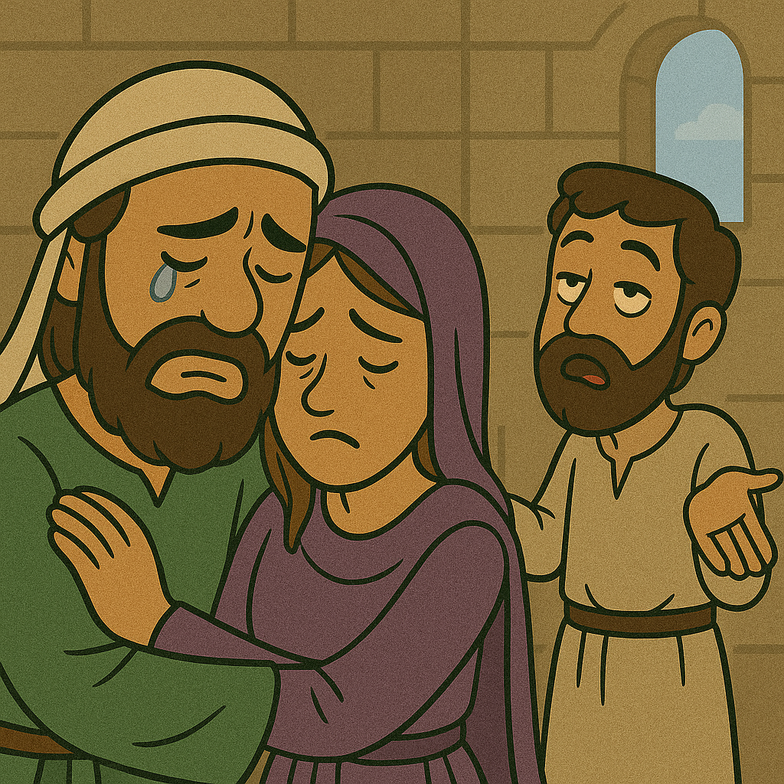May 15th


Today’s reading comes from 2 Samuel 13–15.
Amnon was David’s eldest son, and Absalom was David’s third son. Tamar, Absalom’s sister, was therefore Amnon’s half-sister. Tragically, Amnon lusted after Tamar and devised a scheme to get her alone. Though she resisted and even pleaded with him to approach the king so that their union could be made in a God-honoring way, Amnon refused. He overpowered her, raped her, and then cruelly cast her aside.
We’re told that David was angry when he heard of this, but no justice followed. Left with no resolution, readers are tempted to see Absalom—the avenging brother—as the only one acting righteously. Surely, we think, Amnon deserved banishment like Cain. So when Absalom plotted and carried out Amnon’s murder, it almost feels like justice served, a kind of “spiritual karma.” Even though we understand David’s choice to banish Absalom for rebelling against him, our sympathy still leans toward Absalom as David’s action seems a little late.
However, that sympathy begins to shift once Absalom is restored to Jerusalem. Though back in the city, he’s denied access to David. Eventually, after burning Joab’s field to force an audience with the king, Absalom is granted favor again. But immediately his true colors emerge: he is ambitious, manipulative, and determined to seize the throne.
The first red flag comes in 2 Samuel 15:1,
“After this Absalom got himself a chariot and horses, and fifty men to run before him.”
This detail is not insignificant. In Deuteronomy 17:16–17, Israel’s kings were specifically warned not to acquire many horses. Absalom had no regard for God’s Word—or for his father. Stationing himself at the city gates, he intercepted those seeking the king’s counsel, flattering them and stirring dissatisfaction with David. Verse 6 tells us,
“So Absalom stole the hearts of the men of Israel.”
With this stolen loyalty, Absalom launched a coup against his own father. The sympathy we once felt for him evaporates, replaced by the same distaste we held for Amnon.
But here’s the bigger lesson: even when the stories of Scripture confuse us, or when injustices trouble our own lives, we must remember that God is sovereign. Nathan’s words to David after the Bathsheba and Uriah incident echo loudly here,
“Now therefore the sword shall never depart from your house, because you have despised me and have taken the wife of Uriah the Hittite to be your wife.”
Sin always leaves a mark. Though forgiven, David still bore the consequences. So do we. We live in a fallen world where even the innocent suffer and where death is certain. But in all of this, God’s grace remains more than sufficient to carry us through every difficulty and trial.
Takeaway: Sin may be forgiven, but its consequences linger. Yet in the midst of brokenness and pain, we can rest in the unshakable truth that God is in control, and His grace is enough.